
This activity is provided by Med Learning Group.
This activity is supported by an educational grant from Lilly.
Copyright © 2024 Med Learning Group. Built by Divigner. All Rights Reserved.
Given the complex nature of the condition, there is no one-size-fits-all treatment to cure Alzheimer’s disease (AD).1,2 Rather, Alzheimer’s treatment should be individualized based on each person’s symptoms, response to the treatment, and associated side effects.1,3 While there is no cure, the overall goals of treatment involve treating the underlying disease process, helping people preserve their mental capacity for longer, and managing behavioral symptoms.4
Just as with early detection and diagnosis of AD, starting treatment as early as possible can help improve quality of life and preserve daily functioning.2,5 Available pharmacologic treatments include interventions that can either temporarily treat symptoms of AD related to memory or thinking, or those that treat the underlying cause for disease.6,7
Non-pharmacologic interventions do not change the underlying disease course; however, these interventions are often implemented to help maintain or improve cognitive function as well as reduce behavioral symptoms.8 Such intervention can include cognitive stimulation, music-based therapy, psychological treatment (ie, cognitive behavioral therapy), physical therapy/exercise, and a healthy diet.8,9
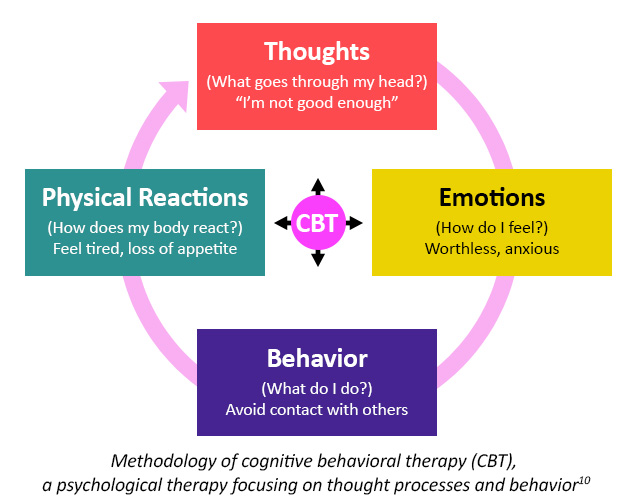
Prescription cholinesterase inhibitors (donepezil, rivastigmine, and galantamine) and memantine, an N-methyl-D-aspartate (NMDA) receptor antagonist, are among the first drugs prescribed to people with AD.3 These drugs work by affecting neurotransmitters, special chemicals responsible for communication between nerve cells in the brain.1,11 By improving nerve cell communication, these drugs can help preserve mental function.11 However, they don’t work for everyone and since they don’t address the underlying disease process, they may only help for a limited amount of time.6,11
Another class of drugs, called monoclonal antibodies, may help improve the underlying disease process in AD.6 These medications targeting Alzheimer’s work by decreasing amyloid deposits in the brain.6,12-14 Aducanumab and lecanemab have received FDA approval for the treatment of mild cognitive impairment (MCI) and early (mild) stage of AD, while others like donanemab and gantenerumab are in the research pipelines.6,11,16 It should be noted that aducanumab is being discontinued in 2024. The manufacturer, Biogen has stated that patients who are currently receiving the drug as part of a clinical trial will continue to have access to it until May 1, 2024, and those receiving aducanumab via prescription from their treating physicians will have it available until Nov. 1, 2024.8
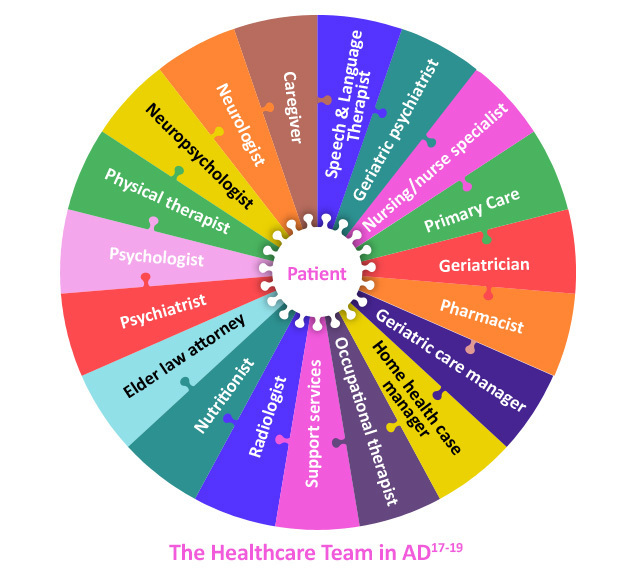
Caring for people with AD is a team effort.17-20 Caregivers and medical providers work together to find the best treatment options and develop care plans as Alzheimer’s Disease progresses.20,21 Often caregivers will coordinate with their medical care team, which often includes doctors, nurses, therapists, pharmacists, and supportive care.17 This can also include elder law attorneys and geriatric care managers.17 Using a multidisciplinary approach to care can help both caregivers and patients achieve the best quality of life and health outcomes.
All URL’s accessed February 14, 2024.

This activity is provided by Med Learning Group.
This activity is supported by an educational grant from Lilly.
Copyright © 2024 Med Learning Group. Built by Divigner. All Rights Reserved.
Esta actividad es proporcionada por Med Learning Group. Esta actividad es co-proporcionada por Ultimate Medical Academy / Complete Conference Management (CCM).
Esta actividad está respaldada por una beca de educación médica independiente de Regeneron Pharmaceuticals, Inc.

Copyright © 2019 Med Learning Group. Construido por Divigner. Reservados todos los derechos.

Chief Medical Officer
Frank C. and Lynn Scaduto MIND Institute and Behavioral Health
Miami Jewish Health
Miami, FL
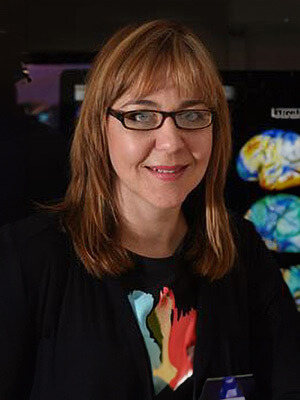
Indiana University Distinguished Professor
Barbara and Peer Baekgaard Professor in Alzheimer's Disease Research
Professor in Neurology, Radiology, Medical and Molecular Genetics
Indiana University School of Medicine
Department of Neurology
Indianapolis, IN
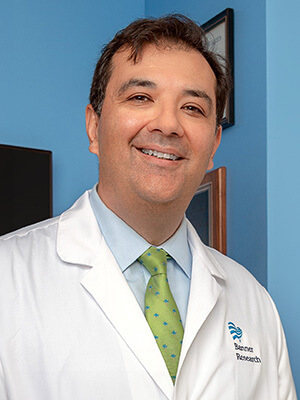
Director, Banner Sun Health Research Institute
Banner Health
Sun City, AZ
Lecturer on Neurology, Center for Brain/Mind Medicine
Brigham and Women’s Hospital and Harvard Medical School
Boston, MA

Program Director, AdventHealth Geriatric Fellowship
Winter Park, FL

Director, Massachusetts General Hospital
Frontotemporal Disorders Unit
Professor of Neurology, Harvard Medical School
Boston, MA

Clinical Professor of Medicine
Tufts University School of Medicine
Clinical professor, Department of Public Health and Community Medicine, Tufts University
Chief, Geriatrics Service, Tufts Medical Center
Senior Physician, Pratt Diagnostic Center
Dean ex officio, Office of International Affairs, Tufts University School of Medicine
Boston, MA
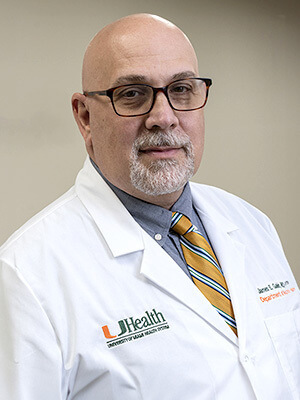
Professor of Neurology
University of Miami Miller School of Medicine
Miami, FL

Professor and Director
Division of Memory Disorders and Behavioral Neurology
Department of Neurology
Heersink School of Medicine
University of Alabama at Birmingham
Birmingham, AL

Henry & Amelia Nasrallah Endowed Professor
Department of Psychiatry and Behavioral Neuroscience
Saint Louis University School of Medicine
St. Louis, MO
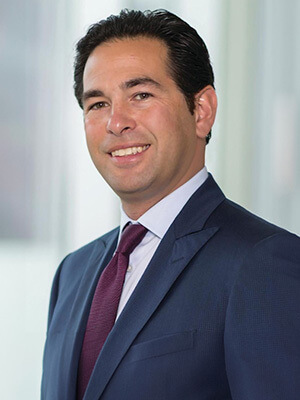
Director of Geriatric Cognitive Health
Pacific Neuroscience Institute
Santa Monica, CA

President, Kerwin Medical Center
Chief, Geriatric Medicine, Texas Health Presbyterian Hospital
Dallas, TX

Assistant Professor of Neurology, Harvard Medical School
Center for Alzheimer Research and Treatment
Brigham and Women's Hospital
Frontotemporal Disorders Unit
Massachusetts General Hospital
Boston, MA

Director, Division of Geriatrics
Co-director, Center for Memory Loss and Brain Health
Hackensack University Medical Center
Hackensack, NJ

The Saunders Family Chair and Professor of Neurology
Director of the Center for Molecular Integrative Neuroresilience,
Professor of Psychiatry and Neuroscience
Professor of Geriatrics and Adult Development
Department of Neurology and Friedman Brain Institute
Icahn School of Medicine at Mount Sinai
New York, NY
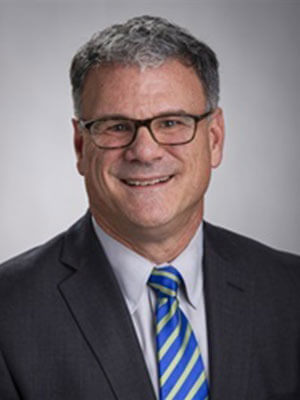
Chief Medical Officer
Advocate Good Samaritan Hospital
Downers Grove, IL
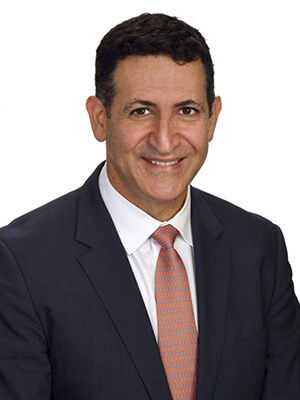
Vice Chairman for Research and Professor
Department of Neurology
Barrow Neurological Institute
Phoenix, AZ

Rick McCord Professor in Neurology
Umphrey Family Professor of Neurodegenerative Diseases
Director, Neurocognitive Disorders Center
Director, Neurocognitive Disorders Fellowship
McGovern Medical School at UTHealth Houston
Houston, TX
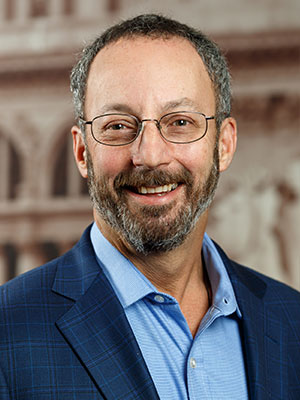
Professor of Family and Community Medicine
Sidney Kimmel Medical College
Thomas Jefferson University
Philadelphia, PA

Professor of Neurology
Director of the Memory Disorders Program
Georgetown University
Washington, DC

Health Sciences Clinical Professor
UC Irvine Department of Family Medicine
Director, UCI Program in Medical Education for the Latino Community
Irvine, CA

John R. Ellis Distinguished Chair of Pharmacy Practice
Professor of Clinical Sciences
Director, Drake Drug Information Center
Drake University College of Pharmacy and Health Sciences
Internal Medicine Clinical Pharmacist
Iowa Methodist Medical Center
Des Moines, IA

Professor of Neurology
Director, Penn Alzheimer’s Disease Research Center
University of Pennsylvania
Philadelphia, PA